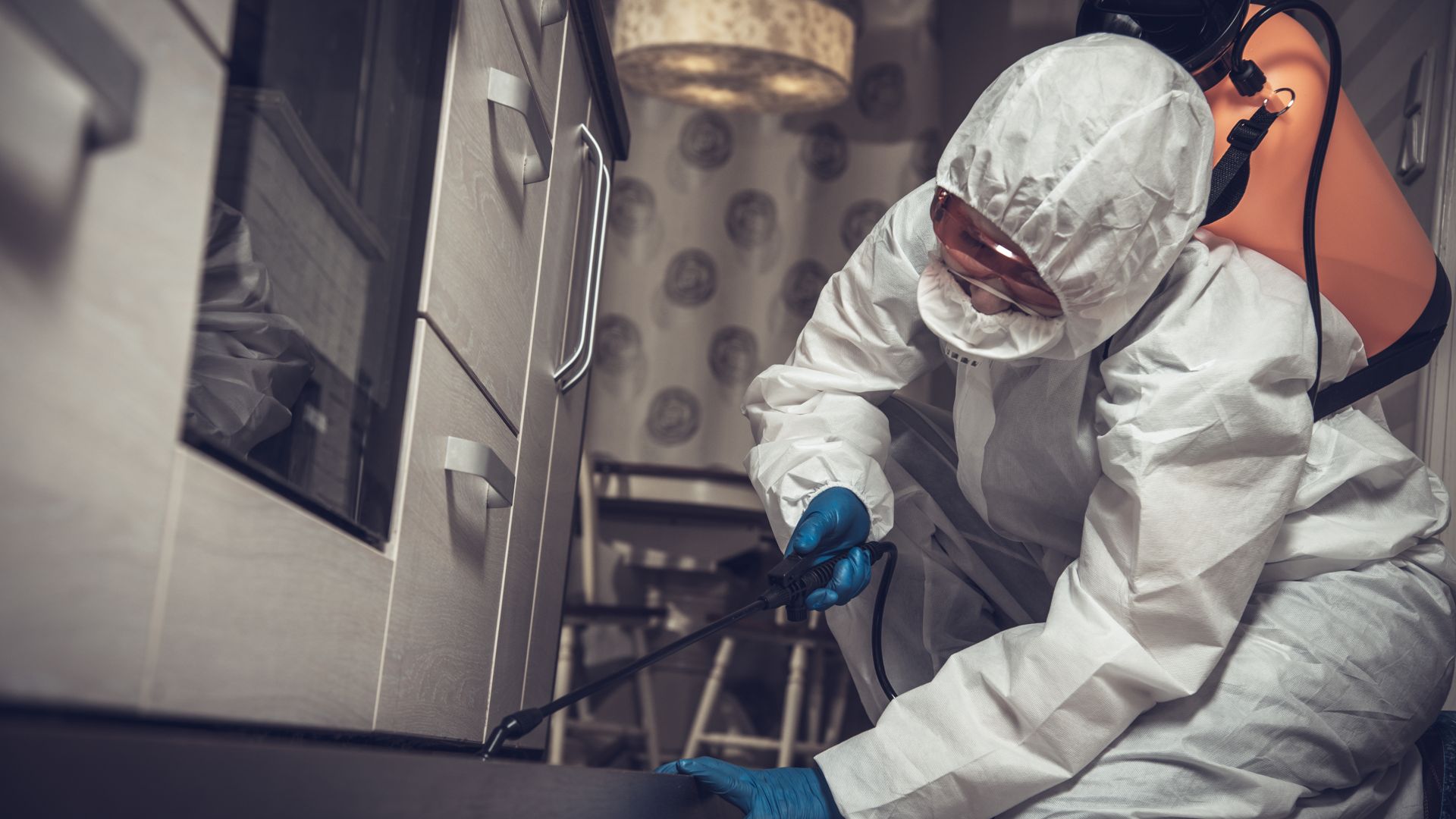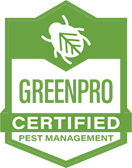
How To Identify And Get Rid Of Rodents On Your Roseville Property
Have you had the experience of leaving your house without your wallet? You go to the grocery store, load up your cart and get to the checkout, and you realize you don't have your wallet. Embarrassed, you leave your items in the cart and return to your car. As you drive home, you are extra cautious because you know you don't have any identification, and if you were to get pulled over, it could be a terrifying experience.
The ability to identify something or someone is important and necessary. Nurses scan ID bracelets in the hospital each time they dispense medication, police officers check identifications, and identification is required to make certain purchases or attend various venues. When it comes to what is scratching inside your walls or underneath your feet, you need to identify the cause.
If you suspect rodents are in your house, the first step is to contact the Roseville pest control experts at Neighborly Pest Management. Our family-owned and local company has removed rodents from homes since 1978. Our longevity in the pest control industry demonstrates that we are your best defense against unwanted pests.
The next step is to learn about what is causing problems in your house so you can make a proper identification. Since you likely clicked on this article because you suspect rodents are in your Roseville house, we will discuss how to identify common rodents and the damage they cause and give you some tips to prevent future infestations. So please keep reading.
How To Identify Common Types Of Rodents In Roseville
.2404180836550.jpg)
Before we ID common rodents in our area, we will go back to the basics and discuss what makes a rodent a rodent. Rodents are mammals, which means the females secrete milk, they have fur, the young are born alive and not hatched from eggs, and they are warm-blooded. Additionally, rodents have four legs, two eyes, ears, and a tail but do not have antennae or wings.
How do you know if a mammal is a rodent but not a dog, cat, or horse? After all, those animals and many others fit the general description of rodents. In addition to these characteristics, the distinguishing feature is a pair of large, rootless ever-growing upper and lower incisor teeth. These teeth have a soft, dentine backside and enamel on the front. Rodents use their teeth to chew through roots, walls, and dirt. Although space will not permit us to share every rodent, common rodents in the United States are in this list of rodents in alphabetical order:
- Beavers
- Gophers
- Groundhogs
- Guinea pigs
- Hamsters
- Mice
- Prairie dogs
- Porcupines
- Rats
- Squirrels


Ensuring your home and business are pest-free, explore our different service areas to see if we're local to you! Give us a call to get started!
The Best Way To Get Rid Of A Rodent Problem
We've been saying that Neighborly Pest Management provides rodent control in Roseville, but we haven't told you how. Our friendly, knowledgeable team listens to your concerns and gathers information when you contact us. Next, we send a highly-trained service technician to thoroughly investigate your property for attractants, entry points, and signs of rodents. We will then provide an accurate quote and schedule a service based on the data we gather from you and the inspection.
Our rodent control uses traps strategically placed in locations based on the rodent species and their habits. We return weekly to inspect the traps or sooner if they were triggered. We will continue to visit over the next few weeks until we remove the rodents. Another part of our process includes exclusion services to prevent rodents from entering your house in the future. We will outline the options and plans when you contact us for pest and rodent control near you.
-
Same-Day & Emergency Services AvailableWhen possible, we can provide prompt assistance to help with your pest solution needs.
-
Local, Family Owned & OperatedRooted in our local communities, we know the best solutions for the pests in our unique areas.
-
We Offer Organic Treatment OptionsEmbrace a eco-friendly approach with our range of sustainable solutions for your needs.
-
45+ Years of Industry ExperienceTrust in our seasoned knowledge and proven track record spanning over four decades.
How Rodents Create Damage And Spread Disease
Life is complicated, and everyone has problems, including rodents. The issue rodents must contend with is their ever-growing incisor teeth. For example, a rat's incisor teeth will grow four inches annually. If a rodent fails to trim its teeth, the teeth will enlarge to the point that the rodent cannot eat and will starve. So, when you see squirrels chewing on nuts in the yard, it is not just about getting food; they are also trimming their teeth.
Rodents gnaw on anything. When rats and mice are inside a house, they chew on furniture, plastic and glass storage containers, aluminum siding, wood, and wiring. Rats will create two to three-inch holes in walls and floors to provide easier access to food sources and the nest.
In addition to harming the aesthetics of wood furniture and the home, the gnawing habits of rodents can put a family at significant risk. Rodents often create nests in wall voids, near appliance motors, and underneath the insulation. The problem with these locations is that they have electrical and internet wires and circuit boards. When rodents chew the protective wire coating away, exposing bare wires to each other, sparks may cause fires. Rodents may be the culprit when abandoned homes catch fire or, if for no apparent reason, electrical fires break out.
As if losing your house to fire is not bad enough, rodents spread disease. Due to their foraging habits in unsanitary areas, they attract bacteria onto their oily fur and feet from disease-ridden surfaces. When they move through a house in the dark, they transfer pathogens as they bump against objects and traverse across surfaces. Rats and mice also spread disease when they defecate, urinate, and chew. Rodents distribute bacteria and viruses responsible for at least 35 infections, which include leptospirosis, rat-bite fever, tularemia, and salmonellosis.
In addition to disease-causing organisms in their fur, rodents may carry fleas, ticks, mice, and lice. Fleas and ticks spread their diseases when they bite hosts to get a blood meal. In addition to bacteria and viruses, they spread parasitic worms to people and animals.
Neighborly Pest Management removes these California rodents from your Roseville house and protects your family against diseases and your home from damage.
Tips And Tricks To Prevent Rodents Around Your Property
Before rodents infest a house, they first invade the property. So, to prevent house rodents from entering your home, you should take these preemptive measures to keep them off your property:
- Keep garbage containers closed.
- Place compost in sealable containers.
- Remove rotting fruit and animal feces.
- Provide drainage to ditches and low-lying areas.
- Remove outdoor pet foods from feeders at night.
- Cover the attic and crawl space vents with 1/4-inch wire mesh.
- Install a spark arrester plug on the chimney.
- Trim tree branches and shrubs away from the house.
- Seal gaps around incoming pipes and wires with steel wool.
- Store firewood 20 feet away from the structure and elevate it.
- Provide ventilation to the crawl space and basement.
- Repair damaged window and door screens.
- Fix leaking pipes and drains.
- Replace loose mortar and weatherstripping around windows and basement foundation.
Maintaining a clean, dry exterior and interior will deter rodents from staying on your Roseville property.
When a service technician from Neighborly Pest Management inspects your Roseville home, we can provide additional ideas specific to your location. Don't put your family or home at risk. Contact us today to learn more about our rodent removal services and warranties and to get a free quote.

Hear From Our Happy Customers
At Neighborly Pest Management, your satisfaction is our priority! See for yourself what our customers have to say about working with us.
-
“We can't share enough positive feedback about Doug and Neighborly Pest. Doug has always gone above and beyond to make sure our house stays bug-free!! He's considerate and always follows up to see how things are going after his visit.”- Sabrina C.
-
“We’ve used Neighborly for a couple of years and have had outstanding service consistently throughout. Doug is mindful of our pets and kid's safety as well, making sure that our home is a safe environment for everyone except the pests!”- Greg
-
“We have been using Neighborly Pest for many years. While we have had many competitors come to our door, we have no interest in changing. Doug has been our technician during our entire service, and he is absolutely the best, always friendly!”- Brittany A.
-
“My technician Doug Stone is amazing!! To say he goes above and beyond to maintain my property is an understatement! He took care of the issue and took the initiative to repair the garage door where my unwanted friends were getting in. Problem solved!!”- Jill M.
-
“Adam was fantastic! Super friendly and professional. I felt at ease and knew I could ask any question, no matter how dumb it sounded, and he was able to answer and provide more information based on my concerns.”- Erin D.
-
“Super friendly and professional. I appreciate the thoughtfulness and professionalism Adam displayed on our initial visit and feel confident he is taking excellent care of my home.”- Erin D.





